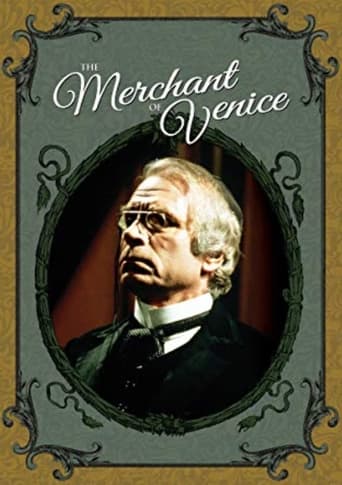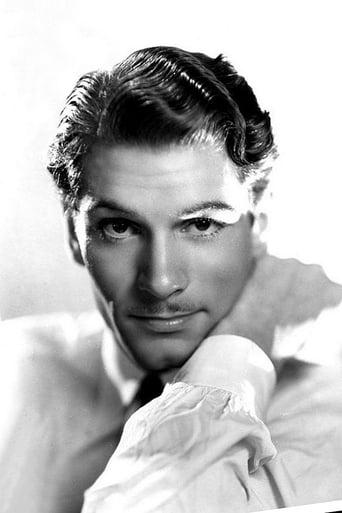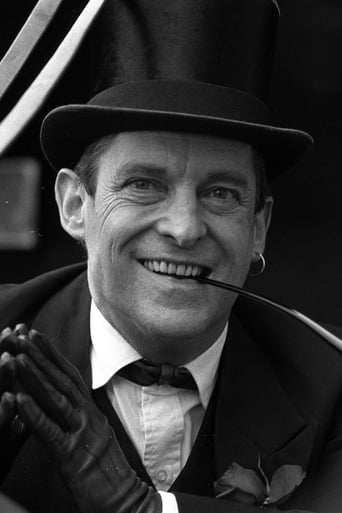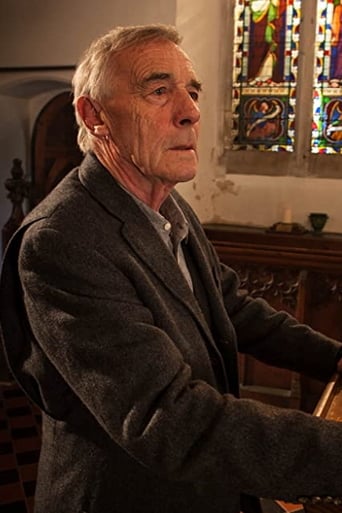An Edwardian take on the Shakespeare play starring Laurence Olivier.
Similar titles
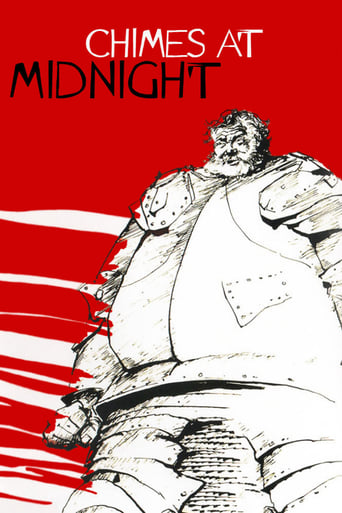
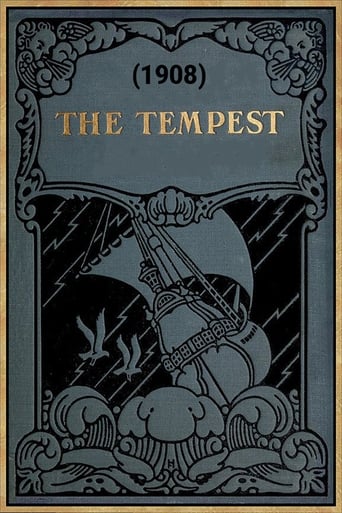

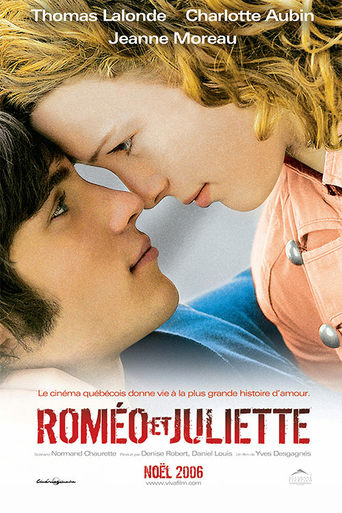
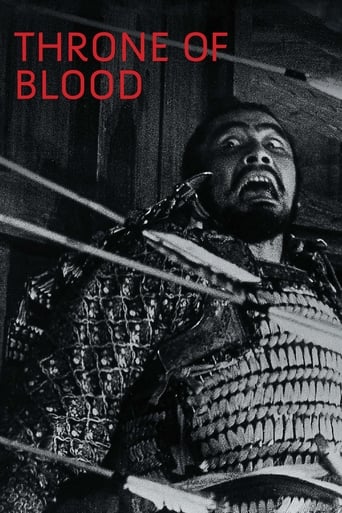
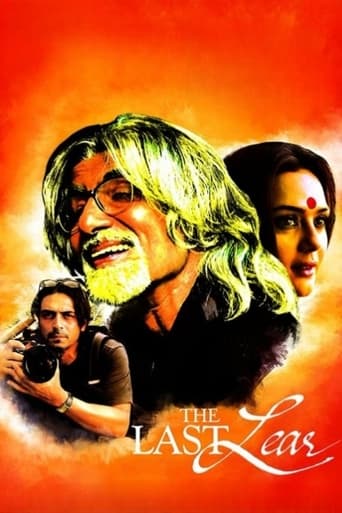
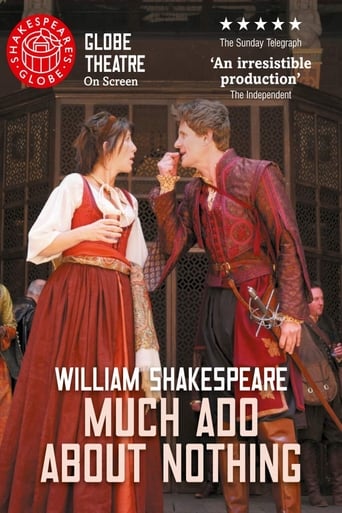
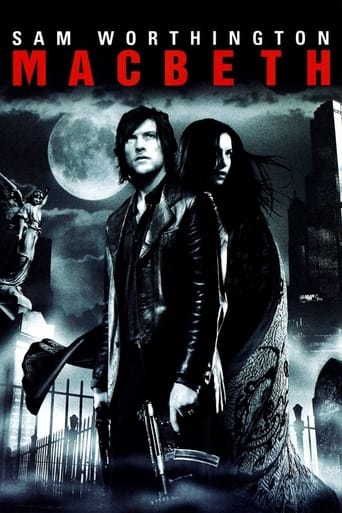
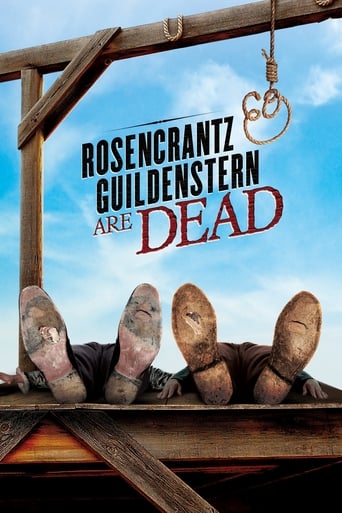

Reviews
Why so much hype?
Save your money for something good and enjoyable
Excellent but underrated film
This is one of the best movies I’ve seen in a very long time. You have to go and see this on the big screen.
Based on the acclaimed 1970 National Theatre adaptation directed by Jonathan Miller, this is an excellent adaptation of William Shakespeare's classic tale of love, friendship, justice, avarice and hatred. This was the first Shakespearean play that I studied at school back in 2003. I just wish that I had appreciated the Bard's work then as much as I do now. It has been quite some time since I last read it but I don't think that there are any major omissions from the play. On the negative side, I can't say that I had any interest whatsoever in the scenes after Shylock's defeat concerning Lorenzo and Jessica and the rings. As far as I was concerned, the story was over as soon as Shylock left the stage. The remaining scenes were rather boring and unnecessary, I'm afraid.Laurence Olivier, perhaps the greatest actor of the 20th Century, is never less than compelling as Shylock, one of the most fascinating and enigmatic characters in all of Shakespeare. Over the last 400 years, interpretations of the character and his actions have changed with the sensibilities of the audience. He may be the antagonist of the play but I think his vindictive nature has come about as a result of the oppression that he has suffered as a Jew in a predominately Christian state. This is best illustrated by the "And if you wrong us, shall we not revenge?" speech. In that scene, he says, "If a Christian wrong a Jew, what should his sufferance be by Christian example? Why, revenge. The villainy you teach me, I will execute." He is emulating the behaviour of his people's oppressors in demanding Antonio's pound of flesh in payment of his debt. I do not think that his own mistreatment excuses his vengeful attitude and actions but it does serve to explain them and to make him a tragic figure, after a fashion. Like many other characters, Portia accuses him of dishonesty but this is deeply hypocritical as she resorts to legal trickery to rob him of his wealth when she has no right to judge him in a legal sense in the first place.The question arises as to whether Shakespeare intended the play to be anti-Semitic or to be sympathetic to the plight of Jews. On the one hand, Shylock seems to be a negative Jewish stereotype of a kind that was common in Europe when the play was written and, unfortunately, for centuries afterwards. On the other hand, there is the aforementioned speech which gives us insight into not only the character but the suffering of Jews as a whole. Does Shylock's forced conversion represent the saving of his soul or does it represent further vindictiveness on the part of the Christians? I think that there is ample evidence to support either theory but I am inclined to give Shakespeare the benefit of the doubt as he created many multi- faceted characters designed to provoke different reactions in his audience. In any event, the producers of this television version clearly intended it to be sympathetic towards Jews. This is best illustrated by Shylock's anguish when Portia defeats him. It is not the reaction of a defeated villain but that of a victim. His agonised wail after leaving the "trial" is heard by Portia, Antonio and Bassanio, all of whom adopt guilty expressions, perhaps indicating some small measure of regret at their treatment of him. I think that the fact that the setting was updated to the late Victorian or Edwardian era was meant to serve as a reminder that antisemitism was as widespread then and now as it was in Shakespeare's time.Other than Olivier himself, the strongest performer is his wife Joan Plowright as Portia. She is excellent throughout but she is at her best in the "trial" scene with her husband. The couple pretty much dominated the proceedings! That said, it has a very strong cast, particularly Anthony Nicholls as Antonio, Michael Jayston as Gratiano and Anna Carteret as Jessica. However, the usually very good Stephen Grief's performance as the Prince of Morocco is rather embarrassing. He puts on a deep voice and uses a silly supposed African accent which makes his one scene fairly painful. Malcolm Reid and Louise Purnell are pretty forgettable as Lorenzo and Jessica but Denis Lawson has a nice cameo as the Cockney-accented Launcelot Gobbo.Overall, this is an extremely well acted and staged Shakespearean play with lovely sets and costumes.
When one of the great Shakespearean actors of the 20th Century takes on one of the great "problematic" roles of the English speaking stage, it is close to criminal that the work is not in current DVD release except as part of a hard to find Olivier "Centenary" set.Jonathan Miller's National Theatre production moves the setting to the late 19th Century with Olivier (who had made his more traditional OTHELLO a virtual homage to the 1943 Paul Robeson performance) adopting a look geared to evoke George Arliss' renowned film portrayal of the great Jewish (but baptized into the Anglican faith as a young child) Prime Minister, Benjamin Disraeli. It is a brilliant touch carrying with it a world of unspoken attitude of suffering under long term bias.Shakespeare's Shylock is one of his most problematic roles, but one remarkable for the insight given to what any other author of the time would have made a stereotyped stock villain. Shakespeare himself had almost certainly never met a practicing Jew; unconverted members of the faith having been expelled from his country before he was born in an early pogrom almost inconceivable to modern eyes. Further, there's no avoiding the fact that Shylock the vengeful money lender IS the villain of the piece - betrayed by his daughter, and plotting the downfall of a Venetian businessman (Antonio) who has spat upon him in the unthinking antisemitism of the era and undercut his lending business by lending money to friends at no interest. (One of the great ironies of the antisemitic "money lending" liable is that the Christian church actively forced Jews into the role - frequently financed by non-Jewish rulers - with Christians forbidden by Canon Law from taking interest for loans!) It is tempting to play the sneering villain as overtly lusting for Antonio's blood, but Olivier avoids the trap, only letting flashes of the underlying malevolence peek through in unguarded moments but they are there, as they must, be for an audience to accept the inevitable fall. Modern (post-WWII) Antonios have to work harder to keep sympathy from swinging to Shylock for the injustices he suffers under, especially so when the Shylock is played with as civilized patina as Olivier creates. Anthony Nicholls' calm demeanor manages this almost perfectly - this is very much a "gentleman's MERCHANT..." from all hands.The centerpiece of the "comedy" - far more than the famous but shallow and just a little unbelievable "Suitors' Caskets Scene" in Act II - is the brilliant trial scene in Act V, here with Joan Plowright - Lady Olivier - the "insider" fun is doubled with real life husband and wife playing off each other at the height of their powers - overcoming the supposedly evil Shylock as Portia, passing herself off as a learned male judge, traps him into a position where his scheme to reek revenge on Antonio is turned on the Jew bringing his total, unregretted downfall...and yet...And yet, Shakespeare is not content to let the audience laugh at Portia's cleverness and the destruction of the villain. He makes the whole scene actually dangerous by giving Shylock the most powerful speech of self defense and against mindless bigotry in all English literature ("Hath not a Jew eyes?" etc.). It is akin to the marvelous perverseness by which Iago drives his victim, Othello to madness and murder with a rain of eternally quotable GOOD advise given from bad motives ("Oh beware, my Lord, the green eyed monster!" etc.). With a great Shylock, and Olivier is a decidedly great Shylock, one is forced to see the real pain and injustice which drives him to his destructive acts - and forgo at least a little of the fun Shakespeare's audience expected in the bear bating-like joys of seeing the "monster" vanquished.Director John Sichel ups the ante by having a musical score play Kadish (the Jewish prayer for the dead) over the final moments of the play while Jessica, Shylock's daughter who has robbed and abandoned him and her faith for a Christian lover, reads of being left the part of her Father's estate not confiscated by the State following the trial scene.It is a powerful work, powerfully played, and worth seeing and discussing by as broad an audience as possible. 'Well worth tracking down a copy.
I agree Portia's suitors were a bit over the top, but one has to remember that this is a comedy, and must be taken in context. Elizabethan comedy was a bit more crude than a lot of people today can appreciate, as it focused on baser jokes concerning sexuality and exaggeration. I felt that the suitors were amusing, especially the Prince of Aragon. His portrayal of a feeble old man exemplifies the purpose of these characters being in the play: to contrast Bassanio and show what the other extreme of the spectrum was: how unsuitable a suitor can be. The ridiculosity of the idea of an 80yr old man courting Portia is part of the joke. I esp like "blinking fool" from the silver casket.If you thought this was over the top, stay well away from the BBC version, as it's Morocco and Aragon are even more flamboyant and obnoxious.
Laurence Olivier's run at the National Theatre included this gem which cast himself as Shylock, with his wife Joan Plowright as Portia. Originally staged in 1970, the cast transferred with ease to this TV version (the only major substitution being Michael Jayston for Derek Jacobi as Gratiano).It moves along quite well and is definitely buoyed up by its starry lead duo. The rejected suitors have a comic aspect which sits well with the 'pound of flesh' seriousness of the remainder. Glad it was recorded for us all to enjoy.
Top Streaming Movies












